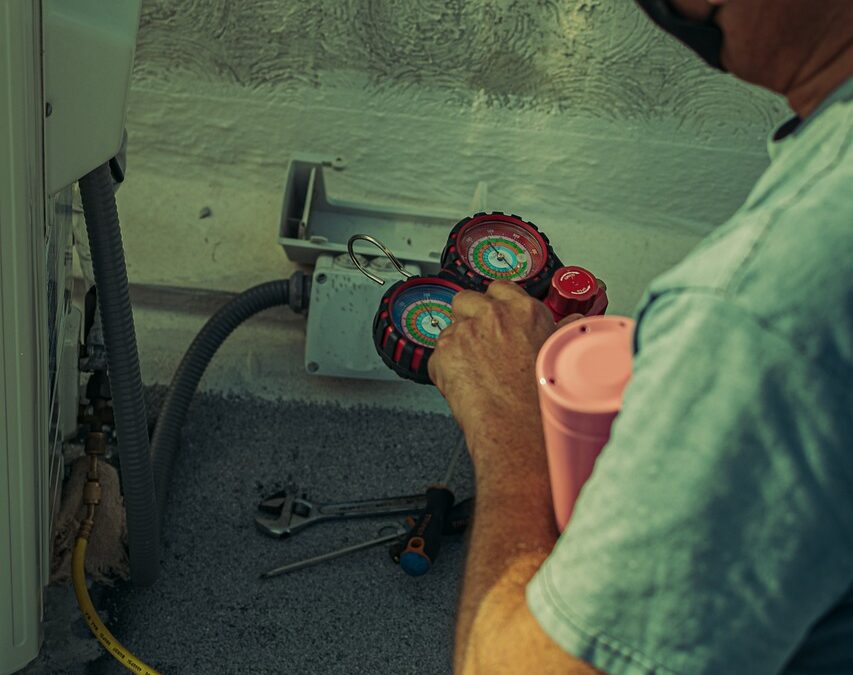As temperatures drop and winter weather arrives, heat pumps have to work harder than usual to keep homes warm and comfortable. While heat pumps provide very economical heating during Nevada’s usually mild winters, extremely cold temperatures combined with rain, snow and high winds can really take their toll on efficient operation. There are several DIY tips you can employ to boost heat pump efficiency and prepare your system for the harsh winter ahead.

Keep Your Heat Pump Clean
One of the best ways to maintain efficiency in your heat pump during winter is to keep the unit clean. Outdoor condenser coils can become clogged with debris, leaves, dirt and other gunk which reduces airflow. Use a soft brush and vacuum to gently clean the condenser coils before winter sets in and monthly thereafter. Also, change air filters each month during winter as dirty filters make your heat pump work harder to circulate air.
Use a Setback Thermostat
Programming a setback thermostat that lowers temperatures when you’re asleep or away can save up to 10% a year on heating costs. The heat pump won’t have to maintain a constant comfortable temperature so it won’t be running as much. Investing in a smart thermostat enables temperature adjustments and scheduling through an app, providing convenience and optimal efficiency.
Seal Air Leaks
Cold drafts from air leaks force your heat pump to work harder, increasing wear and tear. Carefully seal leaks around windows, doors, pipe penetrations, fireplaces, outlets, wiring and any gaps along the baseboards or attic hatches. Use weather stripping, caulk and expandable foam sealant to properly seal all cracks and openings. Reducing air leaks could trim 10% off energy bills.
Add Insulation
If heat is escaping through the roof, floors or walls it must be replaced by your heat pump. Adding insulation creates resistance that keeps warm air inside flowing freely throughout your home without penetrating thin exterior surfaces. Focus first on insulating attics then walls and crawl spaces that border exterior walls.
Trim Nearby Trees
If trees are close to your outdoor heat pump unit, overgrown branches and leaves can end up blocking airflow across the coils. Carefully trim back any branches or vegetation that are within 3 feet of the condenser unit. Unobstructed airflow is key for heat pump efficiency.
Reverse Cycle Defrost
If outdoor temperatures drop below 40 degrees Fahrenheit, moisture in the air passing over your cold condenser coils can freeze up into frost and ice. Allow the heat pump’s reverse cycle defrost mode to kick in periodically to melt away accumulated ice. Don’t try any DIY defrost attempts. Built-in reverse cycle protects the compressor from damage. Restricting or disabling this important function can seriously impact efficiency.
Call the Professionals
No matter the age or maintenance history of your heat pump system, get professional pre-winter inspections and tune-ups. Technicians check refrigerant levels, electrical components, air flows, operating pressures and temperatures. Proactive adjustments maximize operational efficiency while repairs minimize costly breakdowns when you need heating most. Schedule early as demand jumps when cold weather arrives.
At Sky Air & Heat, our certified heating and air conditioning technicians service all makes and models of heat pumps in Las Vegas area homes. We take pride in providing honest, ethical and prompt heating repair services to keep your family safe and comfortable even during harsh Nevada winters. Call Sky Air & Heat today at (702) 272-1841 to schedule seasonal heat pump maintenance!






